Hacking the past, acting together in the present and building the greener tech for the future - these were the high-level goals of the Green Tech Hackathon. In this event review you will find a recap of the projects along with many links and photos. We hope to inspire your imagination and invite you to join and contribute!
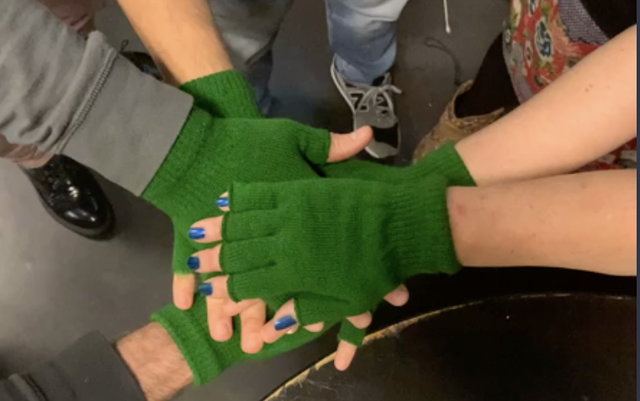
Introduction
Mid-December 2024, the RIPE community was a host to yet another eclectic event - this time focused on sustainability in tech.
The results were impressive: 42 amazing people worked together intensively for two days and completed 10 projects!
For me personally, the Green Tech Hackathon was a culmination of my work on four overlapping aspects over the last 11 years: my personal interest in ecological topics (since 2013), organising hackathons (since 2014) as as part of my Community Building work, increasing diversity (since 2016), and focusing on RIPE NCC’s efforts towards being an authority in sustainable technologies within Internet Governance organisations (since 2019).
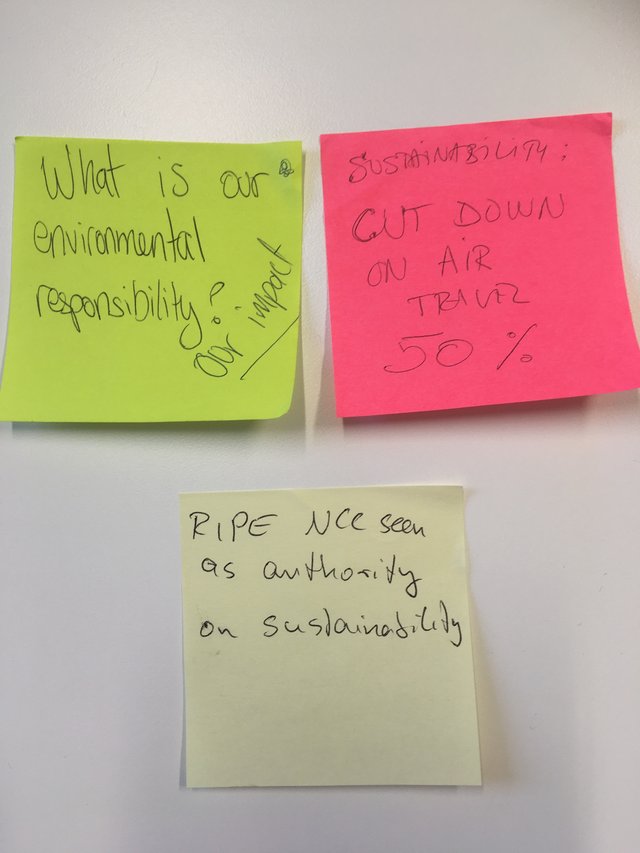
Intangible Results
The main outcomes of the hackathon are not so easy to quantify, but are nevertheless important:
First, the symbolic value. The mere fact that this event happened signals that the RIPE community is embracing ecological sustainability as a crucial aspect of technology, Internet infrastructure and Internet governance.
Second, people power. The focus, enthusiasm and contribution of all the people who have been working on this event for a better half of the year shows that there is both interest and competence within the RIPE and adjacent communities to work further on this theme. Participants brought their projects and passions, practical input, and a potential for great transformation.
For ourselves, the cross-connections were the most valued, which come from bringing together people from different disciplines: network operators and social scientists; software developers and activists; database engineers and FabLab maintainers; user experience designers and office administrators; researchers and poets; hackers and philosophers. It was impressive to see how total strangers quickly got to work together with a shared purpose!
These interdisciplinary inspirations will keep on bringing the results far in the future — the two intensive days that we spent together are only a small seedling for the network of roots and branches that will grow from it!
Another intangible result was inclusion and diversity*. The hybrid and decentralised form helped with this, and supported the theme of sustainability — reducing our ecological impact by refusing to travel long distances. What also helped to increase diversity was including people who could not take time off from work but still wanted to join — by opening up the end of the event to guests, adding active facilitation of the participation in the Local Hubs, having video introductions of online projects, and by allowing everyone who registered to access chat rooms.
*(quantifiably: we had 30% non-cis-male participants in Amsterdam, and a bit less diverse online participation)
I also want to mention what was NOT done, as we made deliberate choices in service of sustainability and diversity:
- Not condoning flying (travel grants were given in form of InterRail train tickets)
- Not using AI to take notes during Zoom meetings
- Not organising the event during the weekend so the work could be done during working hours
- Not giving any awards, even symbolic ones (though everyone got a bar of chocolate!)
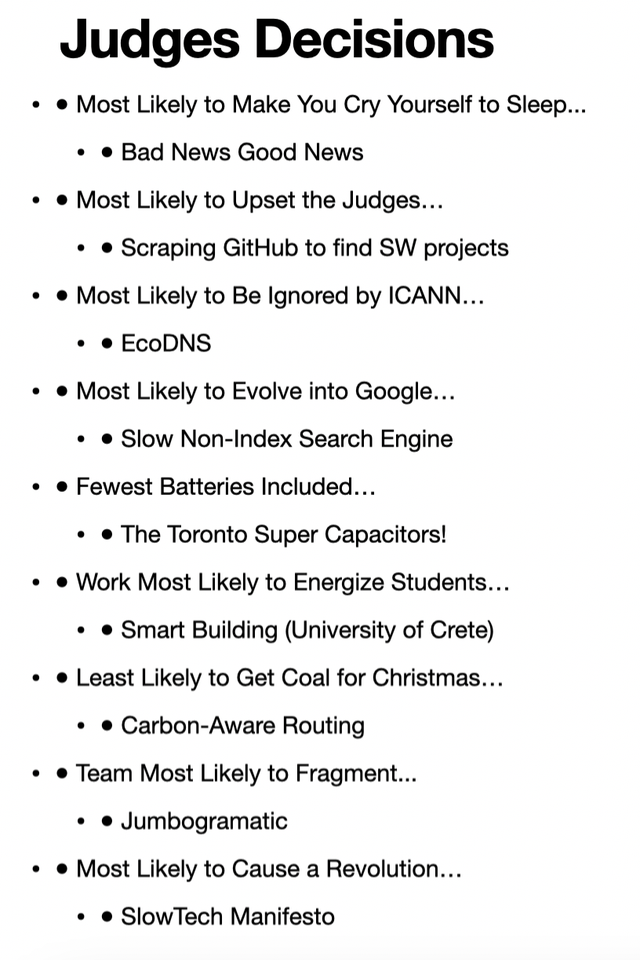
Tangible Results
All the slides & code & recordings can be accessed via GitHub https://github.com/RIPE-Atlas-Community/Green-Tech/Project name, team members and one relevant link:
- “Bad News Good News”, by Valerie Aurora
- “Energy Combined” aka Scraping GitHub to find Green SW projects, by Thomas, Nienke, Cor, Agnieszka, Jon, Theo, Henk + Cristina (online)
- EcoDNS, by Sandoche, Gatien, Nicolas, Arinç, Bibi, Sasha
- ASA (Autonomous Search Agent) for Gemini aka “Slow Non-Index Search Engine”, by Rin, Tim, Max & Kat (Kathrin, online)
- "Hardware Hacks for Batteryless Energy Harvesting Electronics and Computing" by Brian (online) & Niall, Andy, Cristian (all 3 in Dublin Local Hub)
- How Green is our Campus? aka Smart Building by Fontas, Antonis, Aris, Christina & Pavlos (all at the University of Crete - Heraklion Local Hub)
- WIKIFICATION, by Z. Blace and Ege (both online)
- "Green Path Optimizer" aka "Carbon-Aware Routing", by Ramon & Emil
- Jumbogramatic aka "Big Green Packets With BGP, by Asbjorn, Q & Toke (online)
- “Follow the Green Bit Road” aka SlowTech Manifesto, by Paulan, Marcus, Luis, Douwe, Lea & Sander
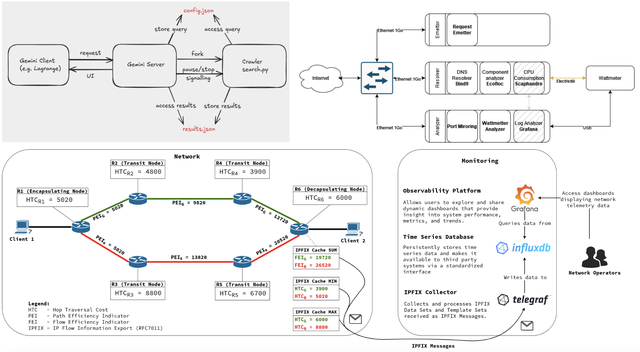
Personal Highlights
- The most relevant for the RIPE community were two routing topics:
- Another view to the Carbon-Aware Routing, since this has been a topic already presented at RIPE 88 - and Ramon is planning to submit this project as a RACI talk!
- The Green BGP project: the members of that team have already been to many of our hackathons, and they have the most overlap between IETF, hackers and the RIPE community.
- The most likely to continue is the EcoDNS, whose members announced that they will take part in the next IETF hackathon.
- My personal favourite was the most theoretical project - the manifesto! I am looking forward to see what will the future bring for this team!
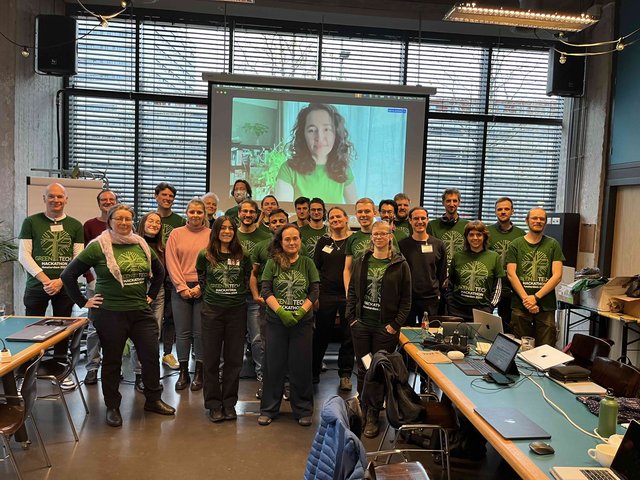
Gratitude
This event was made possible by the contribution and hard work of volunteers, and RIPE NCC staff (Noëlle, Boris, Alastair, and many others!)
The most dedicated group was the Orga Team: Programme Committee volunteers, who promoted the hackathon within their own communities, invited participants, facilitated team formation, gave feedback and celebrated successes! Thank you Michael, Claudia, Shane, Mallory, Chris, and Catalina!
At the webinar the week before the event, we had three guest-speakers, from Green Web, datacenter industry and academic research into Sustainable ICT. Thank you: Hannah, Axel, and Stefanie!
During the main event we were with 32 people in Amsterdam location, around ten in “Local Hubs”, plus ten online participants. Thank you all - your names are listed with the project teams!
And finally, we had around another ten guests who joined for the final presentations and stayed for the social mingling at the “borrel” - thank you for your interest!
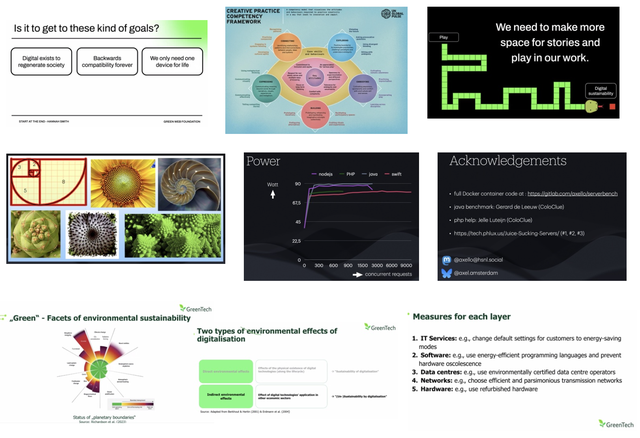
Continuity: Other Events
We rely on the work to continue outside of the hackathon itself. But other events are useful for making progress too, either for presenting the project status, or making the next "burst". Here are some upcoming events in Europe in 2025, that you might be interested in:
- DNS Hackathon: 15-16. March, Stockholm (by NETNOD, DNS-OARC, RIPE NCC) - see my earlier article on this
- SEE-13, 7-8 April, Sofia
- RIPE 90, 12-16 May, Lisbon
- IETF Hackathon: IETF 123, Madrid, 19-20 July
In order the increase diversity, and bring closer links between academia and the RIPE community, the RIPE NCC is supporting newcomers through:
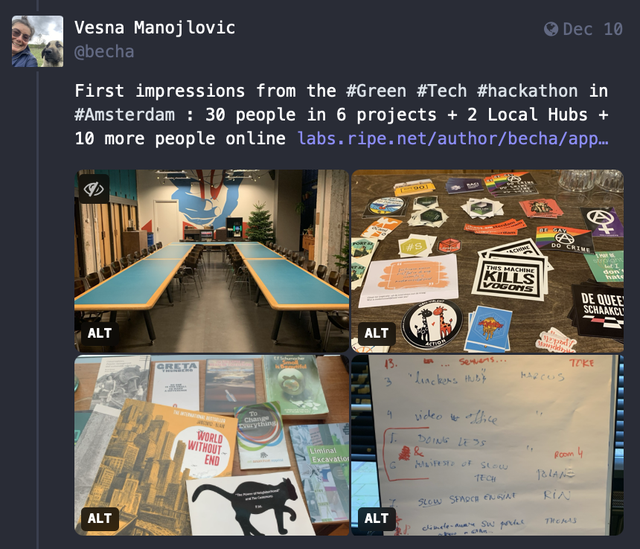
Staying in touch with the RIPE community
- Hackathon specific
- General
- RIPE NCC Forum
- Mastodon
- Other communities dealing with sustainability topics
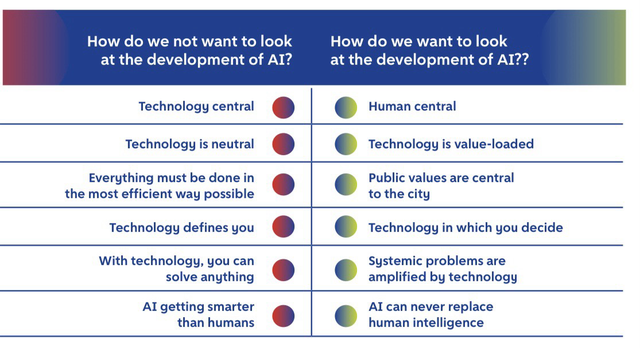
Just say no... to AI
Between the start of planning this event in the summer, and December, there was even more focus in the tech industry on so-called "Artificial Intelligence" (AI). This caused quite some trouble for us at the Programme Committee, since many of the project proposals were mentioning AI as a tool for Green Tech.
We could not agree on outright banning any use of it, but I did find this Vision on AI (in Dutch) to be a useful guideline. This document was developed by the municipality of Amsterdam, in consultation with citizens and experts, and I am proud that I made a small contribution to it (as well as one of the other participants at the hackathon!)
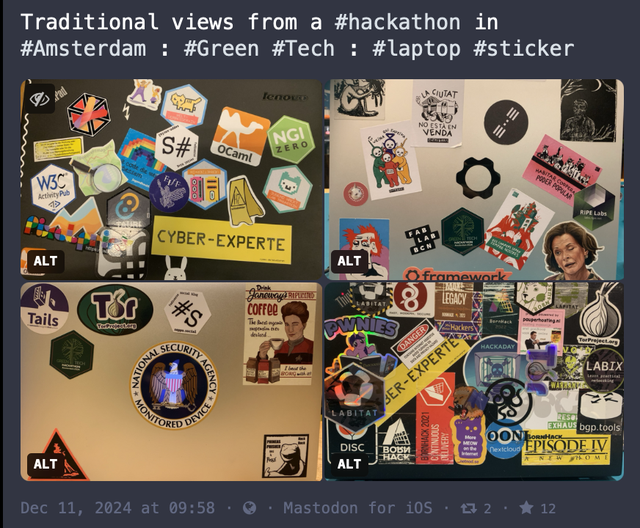
Concluding summary
- When: 10-11 December 2024
- Where: Amsterdam & Dublin & Heraklion & online
- Who: 42+ people
- What: find all the results on GitHub
While we are in a polycrisis of climate change disasters, catastrophic consequences of overshooting planetary boundaries, and growing societal unrest, we all must contribute what we can to find solutions that will bring forth climate justice and social justice.
I am hopeful that this hackathon has contributed, in a small way, to reducing the harmful environmental impact of digital technologies.
With the main event, a prequel, and a Closing Show, this trifecta of activities makes this event our most comprehensive hackathon to date, and a wonderful close to the year 2024!
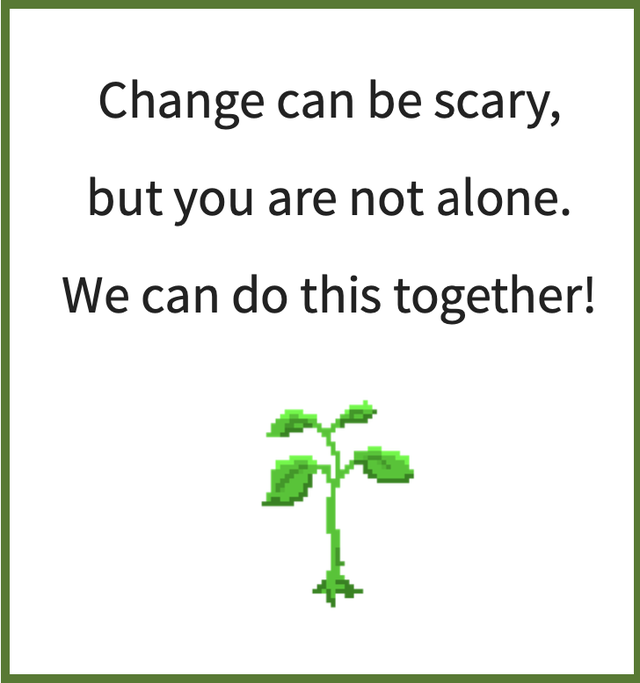

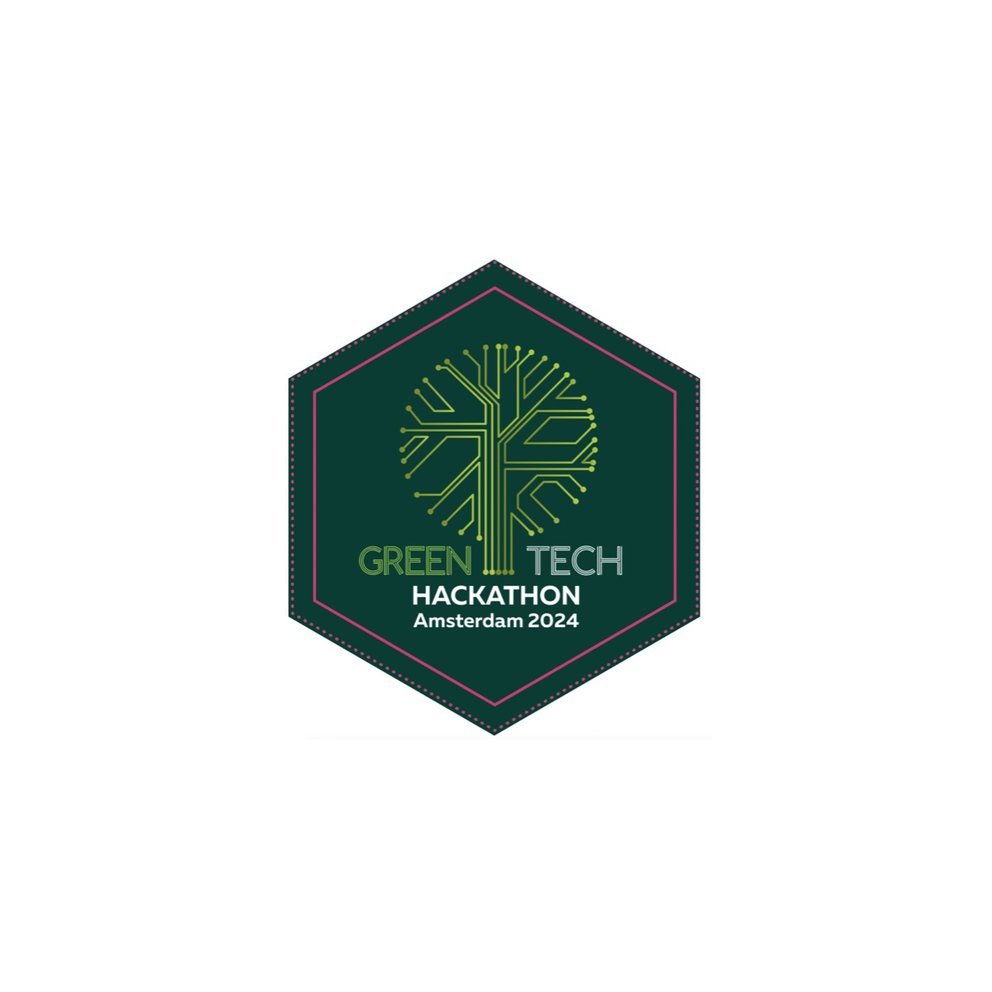
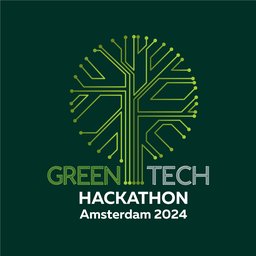
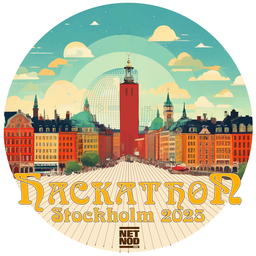

Comments 3
Michael Oghia •
It was a pleasure to participate, Vesna! I really enjoyed both organising and attending. I'm also looking forward to the next iteration!
Jooset •
I would really appreciate if RIPE NCC funds would be used for something better, not watt-metering DNS servers. This should not be a kindergarden project. Optimize some code to make DNS software or packet forwarding in various kernels more energy efficient, and publish that code open source. That would be a great hackathon. I do not think there will ever be a configuration setting for "I'm in love with the planet, make my packets take the least carbon generating path". Not even a "disable my DNS encryption to save power". Does anybody think differently? PS. HTTPS generates more carbon than HTTP, it was not covered in this Hackathon, perhaps next year? Disabling HTTPS on all NCC websites would both save the planet and membership money. But better put a watt-meter on it first to be sure.
Vesna Manojlovic •
Jooset, thank you for your feedback. Environmental sustainability is a complex challenge, and although there are many ways to reduce ecological impact – indeed (and unfortunately) – there’s no simple configuration setting for saving the planet. If you want to suggest something or discuss how the RIPE NCC should be spending membership money, please join RIPE NCC members mailing list: https://mailman.ripe.net/mailman3/lists/members-discuss.ripe.net/